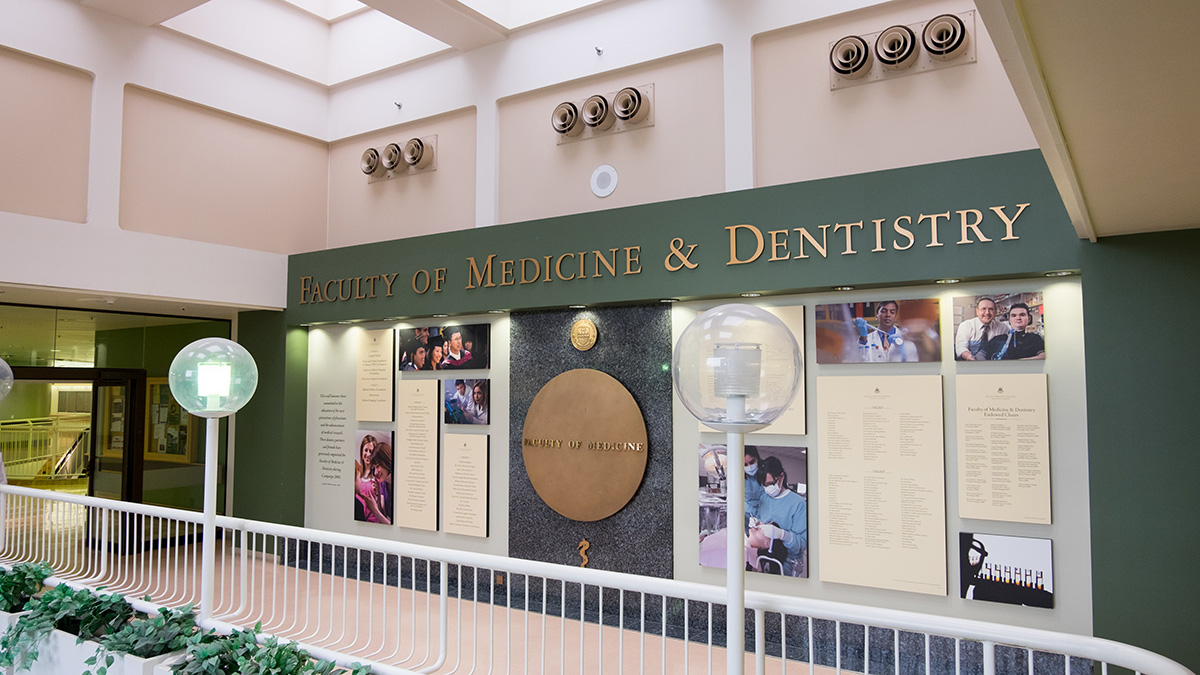Undergrad degrees to become med school requirement in 2018-19
 Eric Lillow
Eric LillowA new admission requirement is coming to the Faculty of Medicine and Dentistry: a degree.
Applicants for the University of Alberta’s medical school in 2018-19 will need a Bachelor’s degree. Currently, a degree isn’t required; students can apply to medical school after earning a 3.7 grade point average (GPA) after two or three full years of post-secondary. If applicants have four or more years of post-secondary course work, they can apply with a 3.3 GPA (if they live in Alberta) or a 3.5 GPA (if they’re from outside the province).
A Bachelor’s degree, a certain number of prerequisites, or both are required for admission to 13 of the 17 medical schools in Canada. The U of A’s admissions change will make its medicine program more diverse, according to Sita Gourishankar, Assistant Dean (Admissions) of the Faculty of Medicine and Dentistry.
“We have a diverse society, and we are socially accountable and so our goal is to provide society the best possible physicians to care for those individuals,” she said. “We hope that the students who would otherwise consider applying after two or three years would take the opportunity to get more life experience and get a Bachelor’s degree.”
She added that close to 90 per cent of medical students at the U of A have already completed four or more years of post-secondary before entering the program.
“A student coming in with a Bachelor’s degree has a broader range of educational experience,” she said. “They’ve demonstrated the ability to commit and complete a rigorous body of work or study towards a degree”
Students divided on changes to admission
Medical students have differing opinions on the change to the medical school requirements, according to feedback conducted by the Medical Students’ Association.
“Lots of students think more experience before coming into medical school could be positive, it will allow applicants to explore other interests,” said association president Yasamin Mahjoub.
Others are concerned that the change will become an unintended barrier for transfer and co-op students who have spent four or more years in post-secondary without earning a degree, Mahjoub added. Prospective students may choose other medical schools that don’t require a degree.
Although the association didn’t release a public statement, it wrote a letter to the Vice-President (Academic) of the Students’ Union opposing the change, primarily because of the barrier it poses for transfer students.
Mahjoub said medical students speculated that the Bachelor’s degree requirement was being implemented because second or third-year medical school applicants were less competent or struggled academically. However, the Medical Students’ Association found that there was no evidence to back up that up, she said.
“In general, most medical students actually think pretty highly of their younger colleagues,” she added. “In general our classes are a pretty collegial environment.”





yeah that’s right and that’s a barrier for students who want to study medicine at your university.
Even for the brightest and most competent, a medical degree just got more expensive. And for the university – oh boy, up to 2 years more fees!